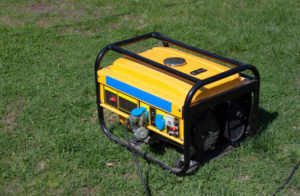The unpredictable climate around the world can lead to a problem for every house as a possible power outage occurs. Many dangers can happen when appliances stop working without electricity. During the winter session, for instance, people need to keep their heating system running if they do not want to freeze and get hypothermia inside the house. This condition has led many people to consider buying a power generator for their home.
 It is not a complicated job to buy one when you have the essential knowledge about selecting a generator. In case you don’t, there is home generators buyer’s guide you can read, including studying the types of generators. It is well-known that the most economical and practical way to generate electricity on-site is to purchase a portable generator that runs on one of the following fossil fuels: gasoline, diesel, or gasoline. Each type of fuel has its advantages and disadvantages. You can review those types of generators, so you pick one to generate electricity for your home.
It is not a complicated job to buy one when you have the essential knowledge about selecting a generator. In case you don’t, there is home generators buyer’s guide you can read, including studying the types of generators. It is well-known that the most economical and practical way to generate electricity on-site is to purchase a portable generator that runs on one of the following fossil fuels: gasoline, diesel, or gasoline. Each type of fuel has its advantages and disadvantages. You can review those types of generators, so you pick one to generate electricity for your home.
Gasoline Power Generator
Gasoline has higher energy content, which means this type can deliver more electricity per unit. However, it can be challenging to obtain when widespread power outages hit a site. It also has a high fire risk if mishandled near a hot generator. Besides, this type of generator requires proper gas removal from the generator if you do not use it. Never use the stored gasoline you have after a few months as the energy content might have been …
